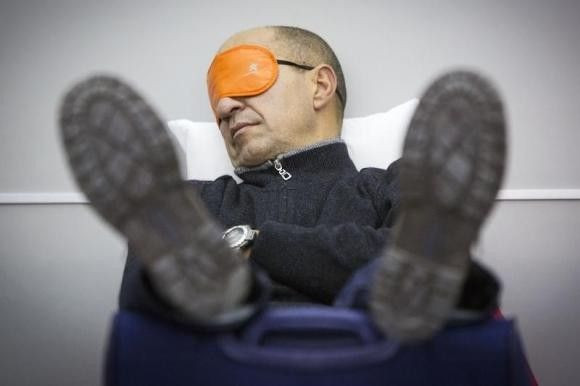Survey Says Work Causes Sleep Debts

Participants in a telephone survey conducted by the U.S. Department of Labor have cited paid work time and time spent traveling to and from one's workplace the main reasons for sleep deprivation. Reduced sleep accounts for increased morbidity and deaths in the U.S. population. Researchers from the University of Pennsylvania used a study called "The American Time Use Survey" to determine the factors that shorten sleep hours and to identify individual characteristics and behaviours associated with reduced sleep that could be focused on for intervention programs.
120,000 Americans ages 15 and above participated in this survey, which was done from 2003 to 2011. Respondents who slept for only six hours or less the previous day had worked an average of 1.5 more hours during weekdays and 1.8 hours on weekends or holidays compared to those who had enough sleep. They also report for work earlier in the morning and stopped working late in the evening. The researchers classified the respondents based on the number of jobs and employment status. Those who work multiple jobs tend to sleep six hours or less on weekdays. Self-employed respondents were less likely to have reduced sleep hours compared to those working in the private sector.
According to Dr Mathias Basner, co-author of the study and Assistant Professor of Sleep and Chronobiology in Psychiatry at the University of Pennsylvania School of Medicine, the evidence that time spent working was the most prominent sleep thief was overwhelming. Moreover, respondents who had less hours of sleep spent more time traveling and were likely to leave home earlier than those who had slept for more than 6 hours.
The correlation between the time work or school starts and the duration of sleep was concluded. Sleep time increased by about 20 minutes for every hour that work or school time started later in the morning. People who started working before 6:00 a.m. had 6 hours of sleep, while those who started at a later time, slept 7.3 hours on average.
Chronic sleep deprivation is customary in modern times and is caused by different factors. Some of which can be avoided because the consequences are detrimental to both physical and psychological health. The authors of this study suggest adjusting workshift and school start at a later time to reduce accumulation of sleep debt in the population. This study is published in the journal Sleep.




















